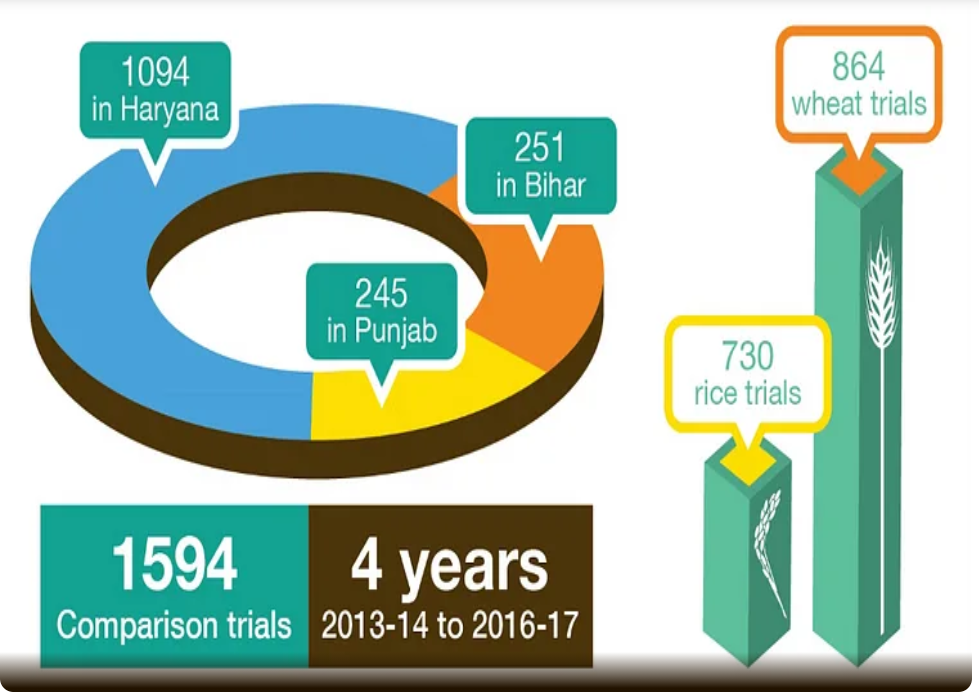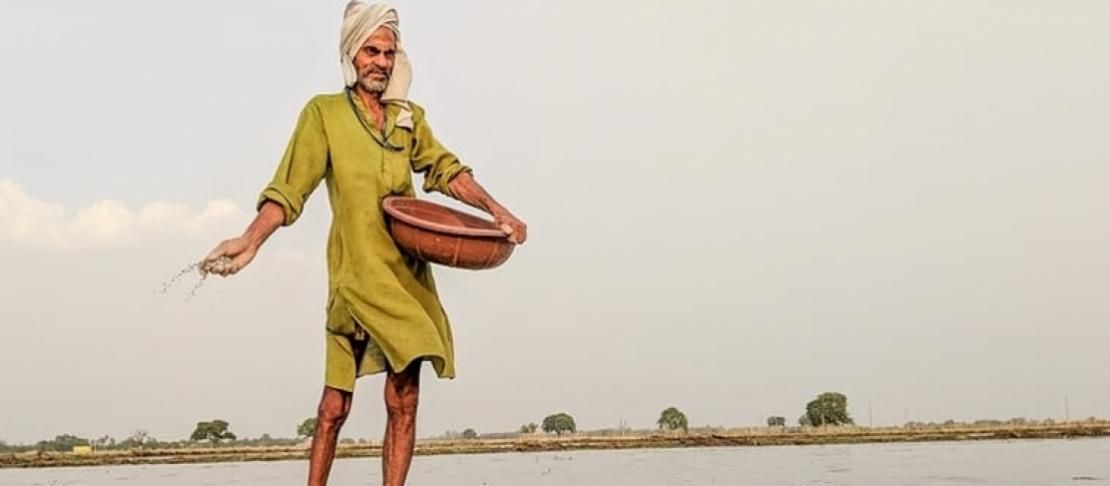New research shows that the Nutrient Expert Decision Tool is better for farmers’ fields, extension services and the environment.
An international team of scientists, led by the International Maize and Wheat Improvement Center (CIMMYT), has demonstrated how better nutrient management using digital tools, such as the Nutrient Expert decision support tool, can boost rice and wheat productivity and increase farmers’ income while reducing chemical fertilizer use and greenhouse gas emissions.
Reported today in Nature Scientific Reports, the results show how the farmer-friendly digital nutrient management tool can play a key role in fighting climate change while closing the yield gap and boosting farmers’ profits.
The researchers tested the Nutrient Expert decision tool against typical farmer fertilization practices extensively using approximately 1600 side-by side comparison trials in rice and wheat fields across the Indo-Gangetic Plains of India.
The study found that Nutrient Expert-based recommendations lowered global warming potential by 12-20% in wheat and by around 2.5% in rice, compared to conventional farmers’ fertilization practices. Over 80% of farmers were also able to increase their crop yields and incomes using the tool.
Related Articles: Playing to Achieve Sustainable Agriculture | What COVID-19 Means for Agriculture | Why Sustainable Agriculture Remains a Challenge
Agriculture is the second largest contributor of greenhouse gas emissions in India. To tackle these emissions, crop scientists have been working on new ways to make farming more nutrient- and energy-efficient. Of the many technologies available, improving nutrient-use-efficiency through balanced fertilizer application—which in turn reduces excess fertilizer application—is key to ensuring food security while at the same time contributing to the UN’s Sustainable Development Goals on climate change.
The latest study is a collaboration between scientists from CIMMYT, the Borlaug Institute for South Asia (BISA), the International Rice Research Institute (IRRI), the CGIAR Research Program on Climate Change, Agriculture and Food Security (CCAFS), the Indian Council of Agricultural Research (ICAR), the Alliance of Bioversity International and CIAT, and the former International Plant Nutrition Institute (IPNI).

Precise Recommendations
Nutrient Expert, which was launched back in 2013, works by analyzing growing conditions, natural nutrients in the soil, and even leftover nutrients from previous crops to provide tailored fertilizer recommendations directly to farmers phones. The tool also complements the Government of India’s Soil Health Cards for balanced and precise nutrient recommendations in smallholder farmers’ fields.
Each farmer’s field is different, which is why blanket fertilizer recommendations aren’t always effective in producing better yields. By using nutrient management tools such as Nutrient Expert, farmers can obtain fertilizer recommendations specific to the conditions of their field as well as their economic resources and thus avoid under-fertilizing or over-fertilizing their fields.
“While efficient nutrient management in croplands is widely recognized as one of the solutions to addressing the global challenge of supporting food security in a growing global population while safeguarding planetary health, Nutrient Expert could be an important tool to implement such efficient nutrient management digitally under smallholder production systems,” said Tek Sapkota, CIMMYT climate scientist and first author of the study.
Sapkota also argues that adoption of the Nutrient Expert tool in rice-wheat systems of India alone could provide almost 14 million tonnes (Mt) of extra grain with 1.4 Mt less nitrogen fertilizer use, and a reduction of 5.3 Mt of carbon (CO2) emissions per year over current practices.
However, technological innovation alone will not achieve these positive outcomes.
“Given the magnitude of potential implications in terms of increasing yield, reducing fertilizer consumption and greenhouse gas emissions, governments need to scale-out Nutrient Expert-based fertilizer management through proper policy and institutional arrangements, especially for making efficient use of the nearly 200 million Soil Health Cards that were issued to farmers as part of the Soil Health mission of the Government of India,” said ML Jat, CIMMYT principal scientist and co-author of the study.
Editor’s Note: The opinions expressed here by Impakter.com contributors are their own, not those of Impakter.com. — In the Featured Photo: A farmer in the Ara district, in India’s Bihar state, applies NPK fertilizer, composed primarily of nitrogen, phosphorus and potassium. Featured Photo Credit: Dakshinamurthy Vedachalam/CIMMYT.










